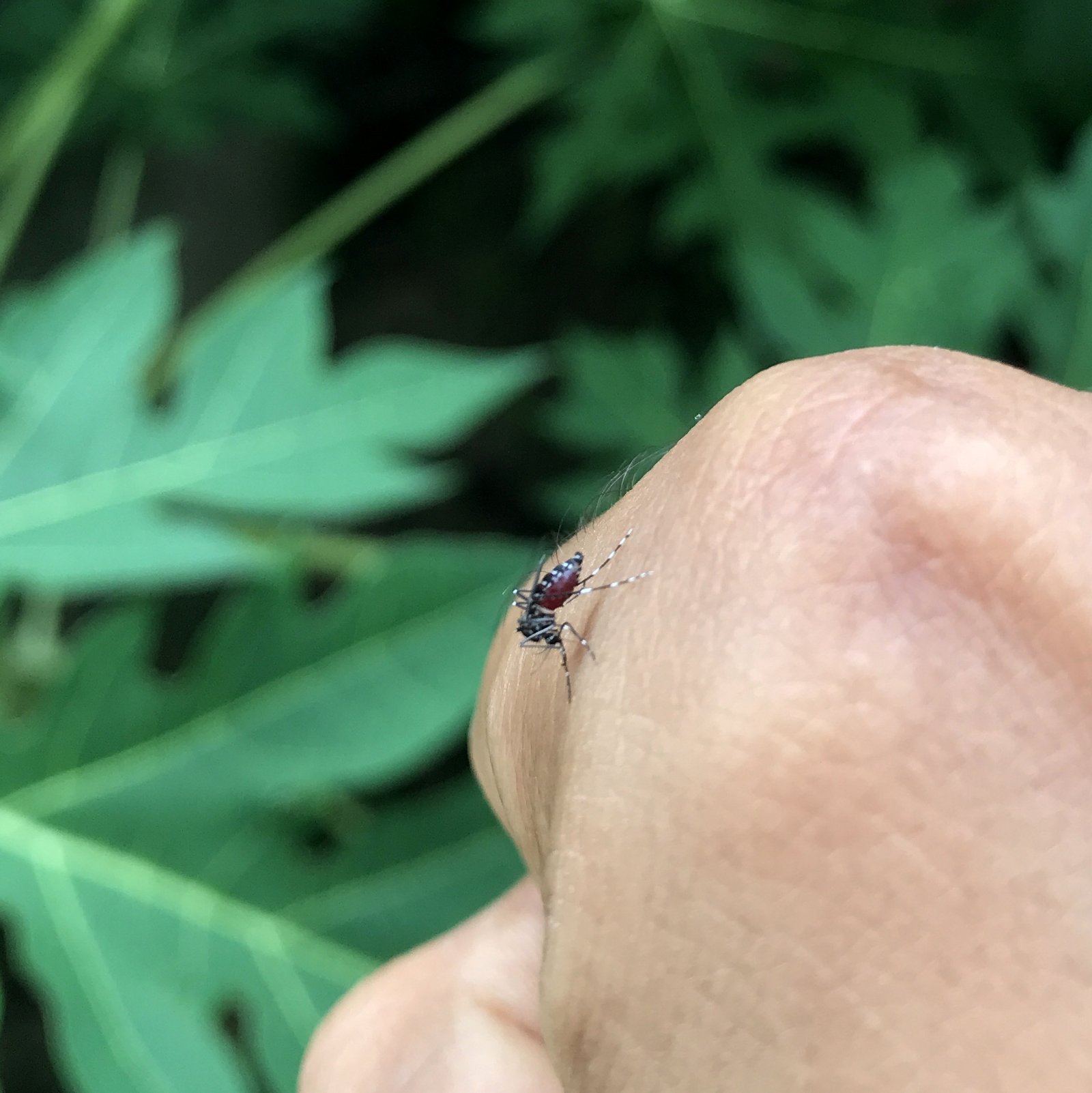
Mosquito
If there is Kṛṣṇa consciousness, then the government or the leaders should be equally favorable to the man, to the animals, to the trees, to the plants, to the insects, to the . . . everyone. That is called kṛṣṇa-bhakti, or Kṛṣṇa consciousness. Adveṣṭā sarva-bhūtānāṁ. Maitraḥ. Treat them just like your friend, maitraḥ. A devotee is friend to everyone. He does not want to kill even an ant or a mosquito. That is devotee, maitraḥ, to everyone friendly. Maitraḥ karuṇaḥ. Karuṇaḥ means kind. A devotee is kind to everyone. It is not that Kṛṣṇa consciousness should be spread in India or amongst the brahmins or amongst the Hindus. No. A Kṛṣṇa conscious person will preach Kṛṣṇa consciousness all over the world, as far as possible. That is called karuṇaḥ.
(740512 – Lecture BG 12.13-14 – Bombay)
Other people are always envious, but the sādhu is always thinking how to save others from the clutches of māyā. A sādhu is kind not only to human beings but to cats, dogs, trees, plants and insects; he will hesitate even to kill one mosquito. He does not simply think, “I shall just take care of my brother.” He looks on all living beings as his brothers because Kṛṣṇa says that He is the father of all living entities.
(TLK 11 The Symptoms of a Sadhu)
“I shall tell You of my purpose in coming here,” Lord Brahmā replied, “but first I ask You to kindly remove a doubt I have. Your doorman told me that You asked which Brahmā had come to see You. May I inquire if there are other Brahmās besides me?”
Upon hearing this, Kṛṣṇa smiled and at once called for many Brahmās from many other universes. The four-headed Brahmā then saw many other Brahmās coming to see Kṛṣṇa and offer their respects. Some of them had ten heads, some had twenty, some had a hundred, and some even had a million heads. Indeed, the four-headed Brahmā could not even count the Brahmās who came to offer their obeisances to Kṛṣṇa. Kṛṣṇa then called many other demigods from various universes, and they all came to offer their respects to the Lord. Upon seeing this wonderful exhibition by Kṛṣṇa, the four-headed Brahmā became nervous and began to think he was just like a mosquito in the midst of many elephants.
(TLC 9)
Prabhupāda: God. God is perfect. He does that. According to the Vedic version, God is the leader of all living entities. Nityo nityānāṁ cetanaś cetanānām (Kaṭha Upaniṣad 2.2.13). We are different from Him because He is all-perfect and we are not. We are very small. We have the qualities of God, but in very small quantity. Therefore we have only a little knowledge, that’s all. With a little knowledge you can manufacture a 747 airplane, but you cannot manufacture a mosquito.”
(760624 – Conversation B – New Vrindaban, USA)
Even in living time there are threefold miseries. Even you sit down peacefully, then the mosquito will bite you, bugs will bite you, and you will get some letter from some enemy. So even if you cannot sit down peacefully . . . if you think, “Now I am sitting at my home very peacefully”—so many things will disturb you one after another. That is called tīvram, bhayaṁ tīvram.
But we are so bold that we are not afraid of it. That is foolishness.
(741209 – Lecture SB 03.25.41 – Bombay)
Even if we kill one mosquito, we are responsible. It is not man-made law, that “If you kill a human being, then you are punished, and if you kill another animal, you are not punished.” This is man-made law according to our convenience. “We have to eat the animal; therefore there is no punishment for animal killing.” But God is for everyone the same. Every living entity is part and parcel of God. So they have been given an opportunity to undergo the punishment or enjoyment. You cannot disturb him. You cannot disturb him. Just like you are living in an apartment according to your position, but if I forcibly I ask you, “Go out of this apartment,” then I will be punishable by the law. I have no right to get you out from that apartment. Similarly, every living entity, by the laws of nature, all laws of nature, is imprisoned or allowed under certain apartment, either in the body of a tree or a human being or demigod or cat or dog. These are all ordained. So you cannot get out the living entity, soul, by force from that body. Then you will be punishable. The living entity is never killed, but you have no right to get him out from that body. That is sinful. If you argue that “What is the harm if I kill one animal, because it is said, na hanyate hanyamāne śarīre (BG 2.20): ‘The living entity, soul, is never killed even after the annihilation of this body’?” that is all right. But you cannot force him. Just like if you get one person, by force, get out from his apartment—he is not dying, of course, but still, it is criminal because you are forcing him to go out of the apartment. So that is the law of nature. You cannot force anyone to get out of the body. Then you are punishable.
(750615 – Lecture SB 06.01.07 – Honolulu)
Prabhupāda: Immediately, just see. And if you allow one second, he’ll fill the whole body up by sucking the . . . just see what is that nozzle, and how quickly they can . . . there is no intelligence? The mosquito has better intelligence than any human being about his business. Therefore Prahlāda Mahārāja said, sukham aindriyakaṁ daityā deha-yogena dehinām (SB 7.6.3). That particular body, he is destined to enjoy a certain amount of sense gratification according to his body. Like that. Sarvatra labhyate daivād. God’s arrangement is nice. He can get it. The mosquito is getting. He wanted to suck blood, so he has been given a teeny body, he can suck blood, very little quantity. So arrangement is there. He’s satisfying his senses, daivād, by arrangement of God. So why you are endeavoring? Even it is there in the mosquito, even it is there in the tiger or any animal or man, it is already arranged. Why you are wasting time in that way? Simply sense gratification. Who will understand this philosophy? The fact is explained.
(760626 – Conversation A – New Vrindaban, USA)
